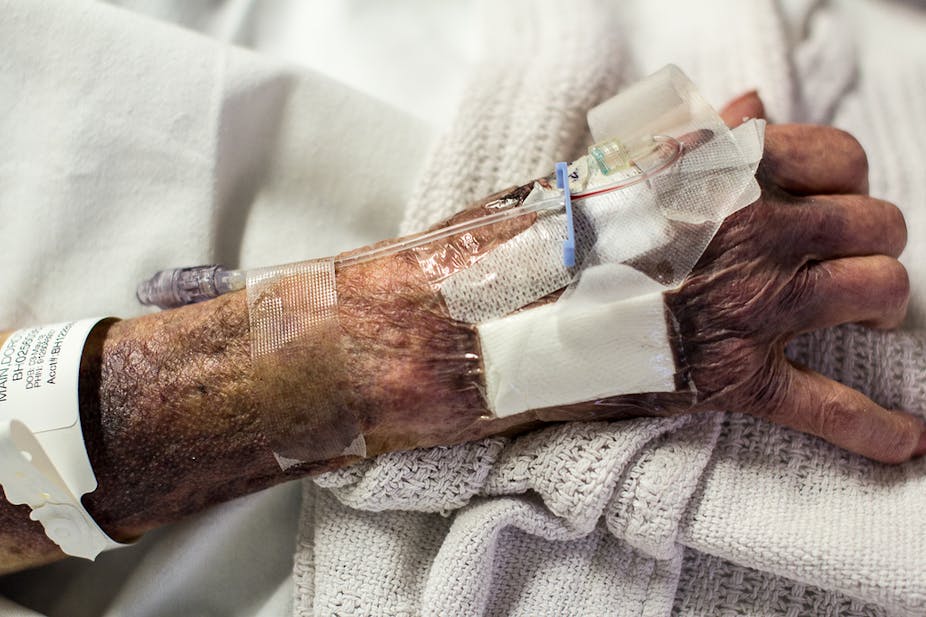We need to do more to ease the pain and suffering of terminally ill patients and allow people to die comfortably, with dignity, and at peace.
This is the issue being debated today in the House of Lords as Lord Falconer’s assisted dying bill receives its second reading. More than 130 peers – a record number – have registered to speak in what is likely to be an emotionally charged debate. Those in favour of assisted dying will promote the importance of individual autonomy and choice. Those against will argue that the bill contains inadequate safeguards, and for the greater need to protect the safety of the most vulnerable in society.
The physiology of dying
Both sides of the debate are motivated by compassion and their perception of a dignified death. But misconceptions about the physiology of dying are frequent, and cloud the debate. For example it is a common misunderstanding, even among doctors, that using drugs such as morphine to relieve pain in people who are terminally ill will precipitate death. However, there is no evidence that using morphine in people who have terminal illnesses hastens death. In fact, a randomised controlled trial in people with lung cancer, found that those patients receiving good symptom control through palliative care not only had improved quality of life, they lived significantly longer than those who did not.
Providing good symptom control, and shifting the focus of care from increasing patients’ quantity of life to improving their quality of life, is not assisted dying. It is simply good care. The consequence of this basic misunderstanding could be to deny effective symptom control to those who need it. Legislating for assisted dying when such misunderstandings persist would appear fraught with difficulty; this is surely an opportunity for such misunderstandings to be addressed and corrected.
Quality not quantity
Most people with less than a year left to live choose to prioritise their quality of life rather than the quantity of time they have left. For example, most people want to be symptom free, in a place of their choosing (usually in their home), surrounded by loved ones, and free from paraphernalia of medical interventions.
However, often even these simple preferences are not met. Dying is increasingly medicalised, with patients receiving more intensive treatments and more invasive tests. Astonishingly, around a fifth of all healthcare expenditure is spent in the last year of life. The irony is that the fortune spent on sophisticated hospital care for people who are dying frequently worsens rather than improves their quality of life and death. Those with the highest healthcare costs often have the most suffering.
The extraordinarily high hospital expenditure for people in the last year of life belies the tiny proportion of research funding allocated to improve their care. In the UK, of the £1.6 billion spent each year on medical research, just 0.1% (10p for every £100 spent) is allocated to research which aims to improve peoples experiences and care at the end of life.
It is estimated that, in high-income countries, at least 63% of all those who die have palliative care needs prior to death. There is great reliance on the charitable sector for end-of-life care provision, and to date there has been limited investment in end-of-life care in acute hospitals, even though around half of all deaths in England occur in hospital.
A recent Royal College of Physicians audit found that only a fifth of hospitals provided face-to-face palliative care services seven days per week, despite a longstanding national recommendation to provide this, and concluded that major improvements in care of the dying in hospitals in England are needed.
We need to do more to ease the pain and suffering of terminally ill patients and to acknowledge the limits of palliative care – it is certainly not a panacea. But we need to ensure that all of those who might benefit from palliative care have access to it. We also need to become better at shifting focus from prolonging the quantity of life in the terminally ill at all cost to preserving its quality. And more investment in research would enable us to understand better how we might achieve this. We need to value dying.

